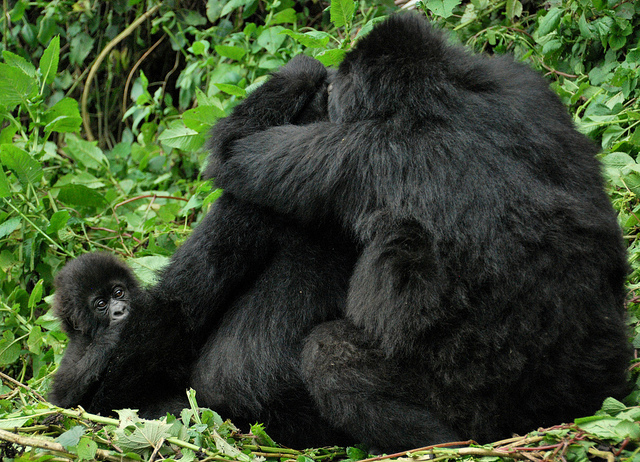
Parenting styles of mountain gorillas may help determine social structures within the species. (Photo by Carine06 via Flickr CC BY 2.0)
Social organization of gorillas has been helpful to explain the evolution of human behavior, but these structures vary among gorilla species. A recent study outlines different parenting styles among mothers in various gorilla species. For example, female mountain gorillas remain with their sons significantly longer than western gorillas. The presence of the mother might reduce the son’s incentive to emigrate, thereby providing a cause for the greater number of multi-male groups among mountain gorillas than their western counterparts. Researchers theorize that maternal support could have similarly contributed to the development of these so-called “patrilocal” societies for chimpanzees, bonobos, as well as early humans.
Authors:
Andrew M. Robbins, Maryke Gray, Thomas Breuer, Marie Manguette, Emma J. Stokes, Prosper Uwingeli, Innocent Mburanumwe, Edwin Kagoda, Martha M. Robbins
Corresponding author:
Andrew Robbins, Max Planck Institute for Evolutionary Anthropology, Deutscher Platz 6, 04103 Leipzig, Germany
Original paper published in Royal Society Open Science on October 19, 2016.

